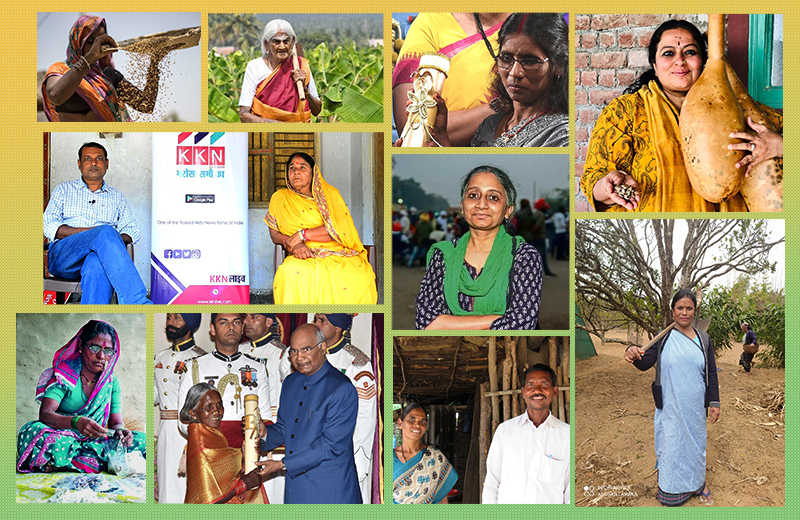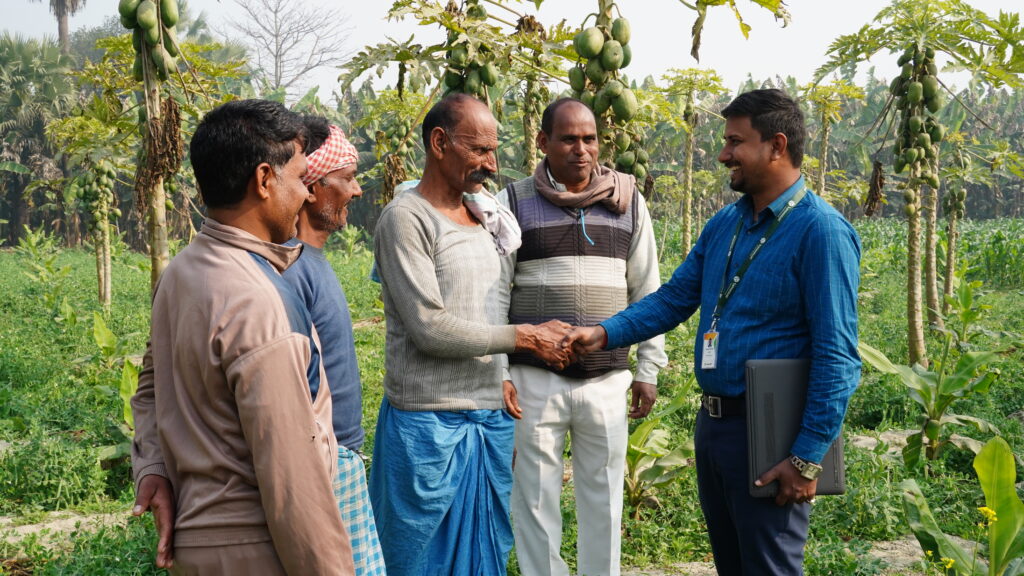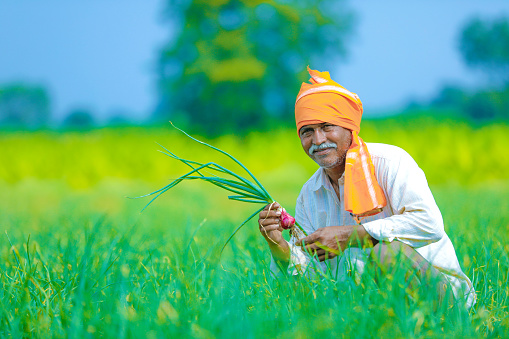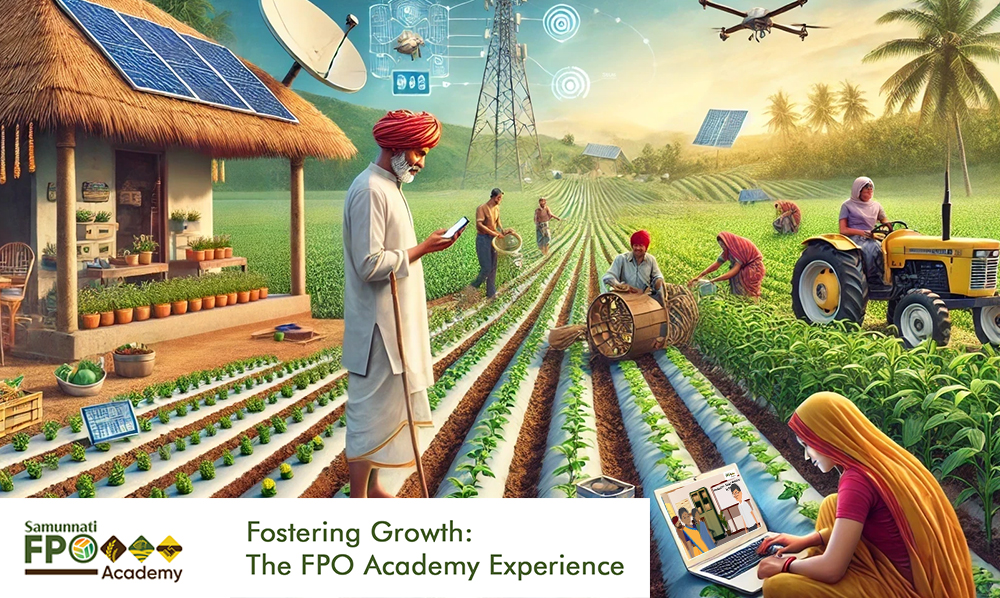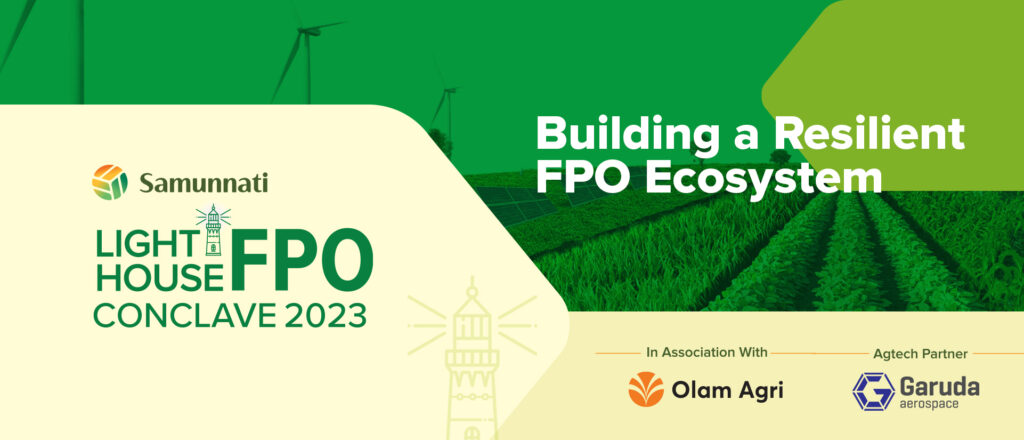Samunnati believes agriculture in India is more than it appears to be – it is diverse, vibrant and spirited. In fact, Indian agriculture is constantly evolving, not just for the technology it uses or modern practices it appropriates. Over the last decade, India has witnessed ‘feminisation of the agriculture sector’, a trend that encapsulates the changing role of women in agriculture – now assuming roles of cultivators, labourers and entrepreneurs.
It is predicted that women will play a pertinent role in significantly increasing food production – giving us a fighting chance against food insecurity1. With equal access to resources, women farmers will also be able to preserve local agro-biodiversity and practise (and popularise) sustainable farming. Here is a look at inspiring women farmers and farming activists who are paving the way towards equal growth:
Spinning a Destiny from Cotton: Atram Padma Bai
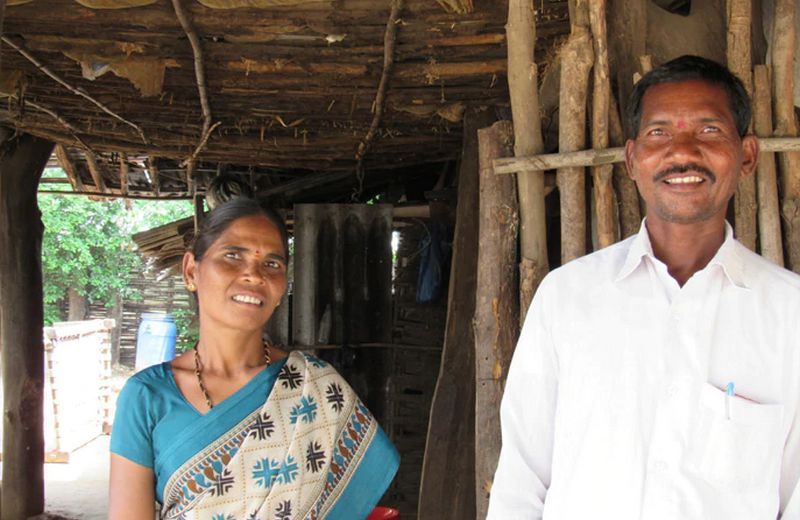
A 3-acre cotton farm that also produced oilseeds and pulses generated only a modest income for Atram Padma Bai. But this Telangana farmer dreamed bigger. She set up a Hiring Centre for agricultural tools to lend farming tools like pickaxes, sickle, spades, hoes and wheelbarrows to poor farmers at marginal rates. And after 6 years, she has certainly come a long way.
Today, she is Sarpanch to eight villages and two thousand farmers. She has built several fair-weather and concrete roads and acquired government sanctions to make clean water accessible and build reservoirs to harvest rainwater. In a world where most women farmers have no claim over their land, Padma has truly built a life on her terms.
The Women Farmers of Medak
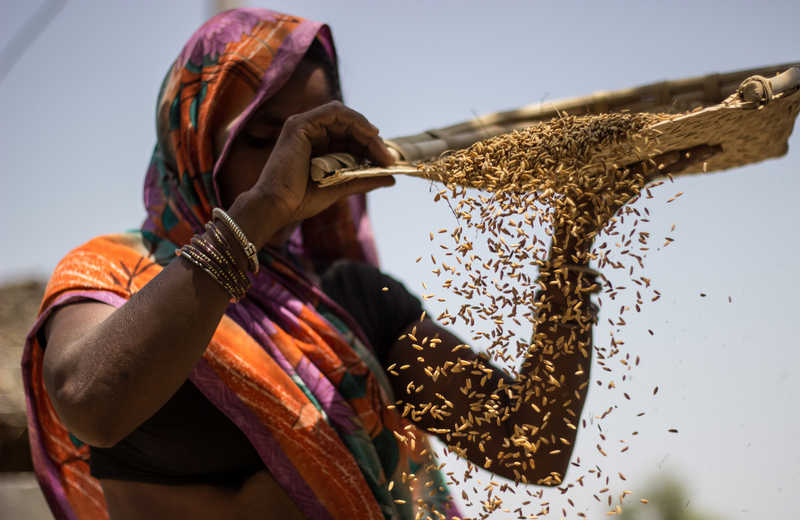
What’s better than one empowered woman? A group, better yet, a community of them. Every single woman farmer in this community was once a landless labourer in Telangana – vulnerable and powerless. After fighting against odds, these women tackled their farming problems and generated additional income using eco-friendly methods like rain-fed farming and organic farming.
Today, they travel across villages in the Vidharbha region of Maharashtra inspiring more farmers to undertake sustainable farming and grow climate-resistant crops like millets. They have also pioneered a method of preserving seeds by storing them in containers layered with need leaves, ash and dried grass.
Lawyer turned Land-healer: Aparna Rajagopal
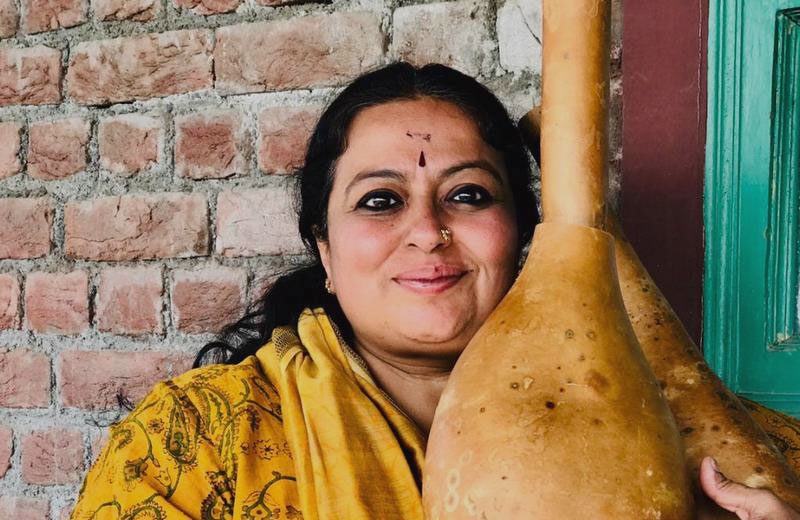
Perhaps, the biggest badge of honour for Aparna Rajagopal wasn’t graduating from a prestigious law school in the country. It was transforming a once-barren land into a fertile one that keeps giving. In a span of five years, this self-taught farmer used permaculture and traditional farming techniques to create a food forest. An animal sanctuary and a sustainable agriculture farm rolled into one, Aparna uses Beejom to empower villagers of Uttar Pradesh with education, sanitation and healthcare. Today, she remains dedicated to the cause of sustainable farming and uses social channels to reach more people.
Leading the Janata of Jaintia towards Atmanirbharta: Trinity Saioo
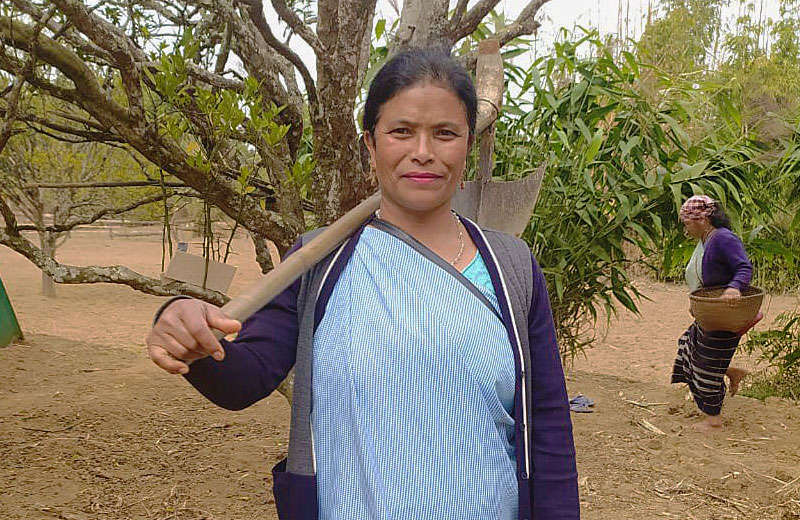
This 2020 Padma Shri award winner single handedly helped turn the lives of more than 800 farmers in the Jaintia Hill region of Meghalaya. Recognised for spearheading a movement to cultivate a traditional variety of turmeric, Trinity Saioo is credited with discovering and promoting this lesser-known variety of the crop.
She leveraged her teaching experience to help the women farmers learn marketing, documenting and organic farming to avail subsidies and triple their income. With the creation of a storeroom, everything from slicing and drying turmeric to packaging and distribution was localised. Working with 100 women Self Help Groups has unearthed a pan-India market for the Lakadong turmeric while empowering the farmers of Jaintia Hills.
Deccan’s Crusader for Indian Farmers: Kavitha Kuruganti
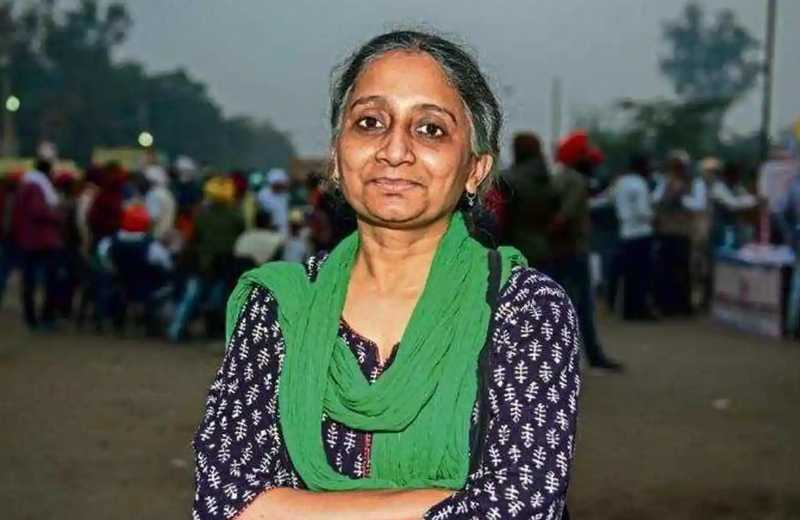
Kavitha Kuruganti is not a farmer – but she did lead 1 lakh odd farmers to Delhi during the Kisan Mukhti March in November 2018. Rallying for farmers’ rights is an instinctive response for Kavitha – from campaigning for climate-smart farming and sustainable farming practices to recognising the role of women farmers in agriculture through her Mahila Kisan Adhikaar Manch.
Widely recognised for rallying support against BT brinjal, Kavitha helped lead a moratorium against this genetically modified variety. Besides standing against GMO, her fight against privatisation of seeds is led by an intention to restore not just income security but also the respect farmers once commanded.
Coimbatore’s Centenarian Women Farmer: Papammal
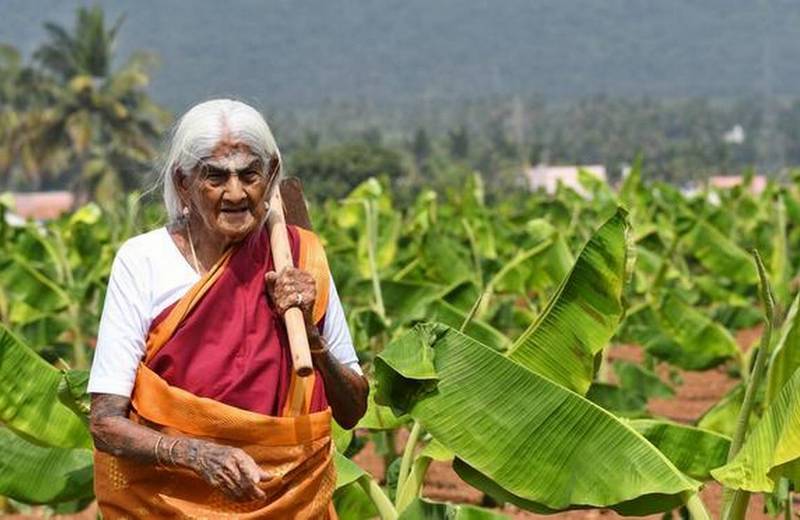
This 2021 Padma Shri award winner’s work begins at daybreak – tending to her 2.5 acre farm in Thekkampatti village in Coimbatore. Celebrated as a pioneer not only in her field but also her community, Papammal has been elected to the local Panchayat twice – once as a ward member of Thekkampatti Panchayat, another time as a councillor of Karamadai Panchayat.
As a lead farmer at Krishi Vigyan Kendra at Indian Council of Agricultural Research (ICAR), she has leveraged her voice to inspire farmer activism and recognition of the role of women in agriculture while encouraging women farmers to actively take up farm-extension activities and participate in decision-making at farm and home. While her 2.5 acre land continues to be an active site of learning organic and sustainable farming practices for home science and agriculture students, her latest recognition comes from Prime Minister Narendra Modi’s visit to Thekkampatti to facilitate her with the Padma Shri award earlier this year.
The oldest working farmer in Thekkampatti, Papammal is the definition of a ‘living legend’ – continuing to inspire farmers and politicians for her commitment to promote organic farming in India.
Birthing a Seed Revolution: Rahibai Soma Popere
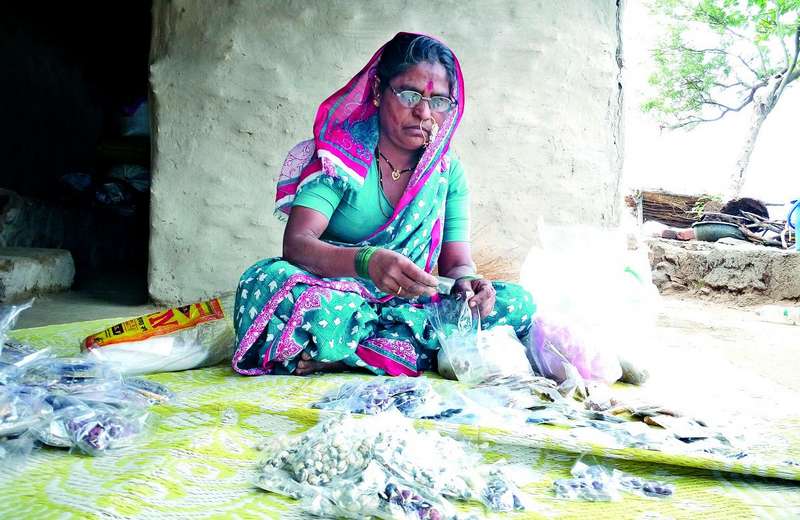
A resident of the Kombhalne village in the Ahmednagar district of Maharashtra, Rahibai Soma Popere’s list of achievements and recognitions run long – from helping farmers adopt indigenous varieties of crops to developing a hyacinth bean for self-help groups to being recognised by the likes of BBC on their 100 Women list in 2018. Dubbed as ‘Seed Mother’ by the scientist Raghunath Mashelkar, Rahibai trains farmers and students alike in everything from selecting seeds to managing land fertility and pests.
Skilled in the four-step paddy cultivation method, her work with SHGs as a farmer and conservationist has brought her national acclaim – winning a Nari Shakti Puraskar in 2018 and the Padma Shri award in 2020.
Leading Women Farmers’ Mushrooming Entrepreneurship Spirit: Bina Devi
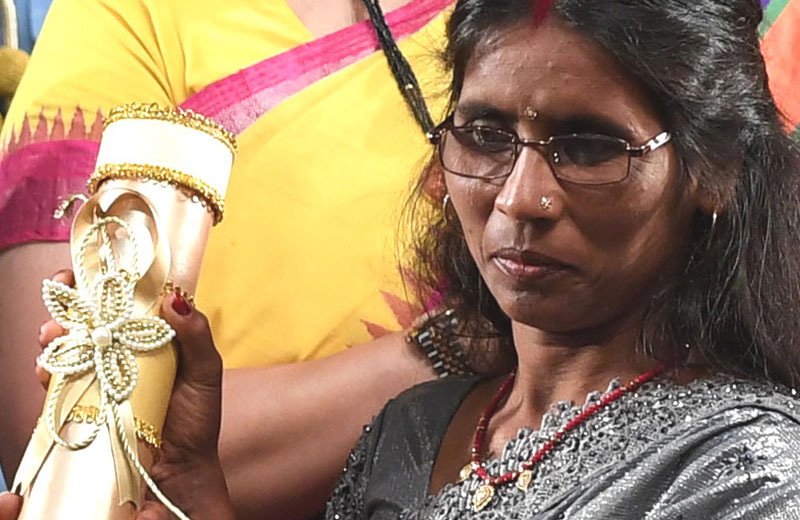
A recipient of the Nari Shakti Puraskar in 2020, Bina Devi’s work in promoting fungiculture or mushroom cultivation awarded her the title ‘Mushroom Mahila’. This teacher-turned-businesswoman from Tilkari village in Bihar is credited with promoting self-employment among rural women.
Besides helping 105 neighbouring villages take up mushroom cultivation, Bina Devi has actively promoted digital literacy, organic vermicompost production & insecticide preparation amongst rural women farmers. Her one-woman-movement helped 2,500 farmers learn and adopt climate-smart practices like the system of rice intensification.
The Fortune-telling Woman Farmer of Muzaffarpur: Rajkumari Devi
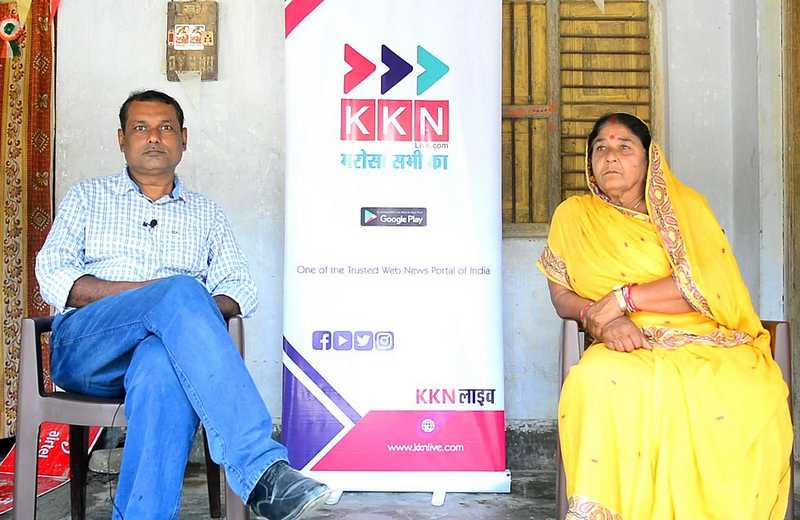
Rajkumari Devi can’t predict the future. What she can predict is what your soil yields best. Hailing from Anandpur village in Muzaffarpur, she has rewritten the agricultural destiny of 19 other villages in her district. It isn’t uncommon to see her inspecting fields on request to assess everything from soil quality to predicting its harvests.
The 3 Panchayats of Muzaffarpur owe their agriculture reinvention to this Kisan Chachi’s way of farming – moving beyond a wheat-paddy-tobacco cropping cycle to diversify into other vegetable and fruits and then to fish farming, poultry and cow breeding.
Kisan Chachi has been the driving force behind women in the region not only farming but becoming full-fledged entrepreneurs. Today, she leads Anandpur Jyoti Centre – a non-profit that employs women farmers to make products like jams, jellies, and pickles from their produce.
A recipient of Kisan Shree Award and the Padma Shri award in 2019, she has helped more than 300 women taste financial independence by setting Self Help Groups. Using her 35+ years of farming expertise, she consults farmers on everything from the farming tips to investing in the right agri-based products to earn additional income.
A Global Icon for Women Farmers: Kamala Pujhari
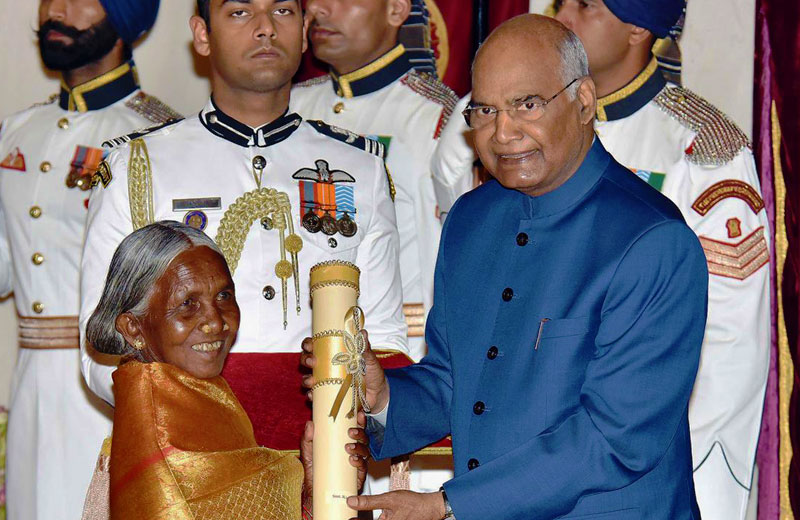
Renowned for rallying against the use of chemicals farming, Kamala Pujhari was the driving force behind tribal farmers of Koraput region adopting organic farming. She first received global renown for attending an organic farming workshop in Johannesburg in 2002.
This agricultural activist helped preserve over 100 traditional varieties of paddy and other endangered breeds of black cumin, sesame, turmeric, maha Kanta, phula and ghantia by promoting the use of bio-fertilisers and other sustainable farming techniques.
One of the first tribal women appointed to the Odisha Planning Board, Kamala Pujhari’s work in adopting and driving adoption of organic farming in India has led to her receiving awards like Equator Initiative Award, Government of Odisha’s Best Farmer and, more recently, Padma Shri in 2019.
These are only a few of the many women who are transforming the Indian agricultural landscape for the better. At Samunnati, we understand the enormous role we play in not only encouraging gender equality but also creating space for women to play more impactful roles in the field of agriculture.
While trying to realise empowerment, rewriting gender norms to offer equal opportunities takes precedence – after all, reimagining women’s role in agriculture and society means building from ground up. Our position in the agri value chain offers us the unique opportunity to balance the scale towards women – to work towards it.
By collaborating with 700+ FPOs, Samunnati leverages its expertise to transform unequal systems across the agricultural ecosystem. Our pan-India team is committed to uplifting, transforming and creating thousand more stories of empowerment for every woman farmer.
1 According to the Food and Agriculture Organization of the United Nations
